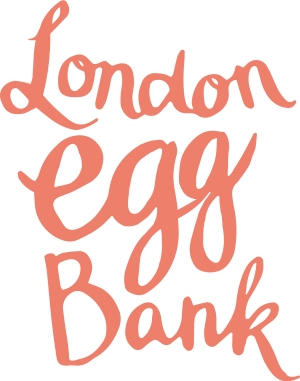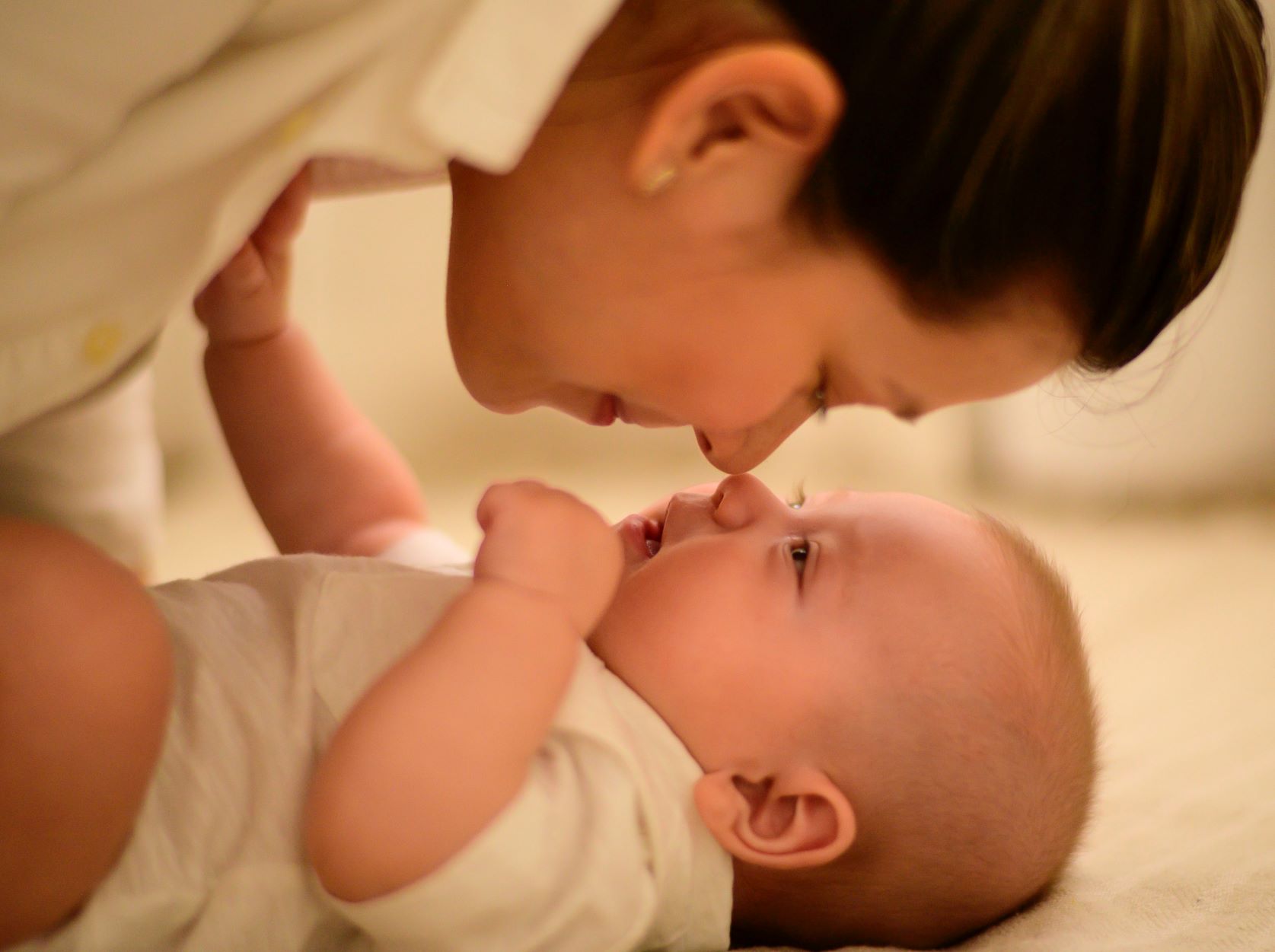A new study investigates the experiences of 85 mothers who used egg donation. Through interviews, it explores how these mums handle the mother–infant relationship in the early months.
As the number of children conceived using donor eggs continues to rise, researchers have more opportunities to explore the experiences and attitudes of real people in family situations involving egg donation.
While many studies have focused on how variations in the quality of infant-parent relationships predict future outcomes, there has been less emphasis on understanding parents’ thoughts and feelings about the process of developing these relationships.
This study, “Making the child mine”: Mothers’ thoughts and feelings about the mother-infant relationship in egg donation families, focuses on heterosexual mothers’ experiences of their relationship with their egg donor-conceived babies. It investigates egg donation mothers’ thoughts and feelings about their relationship with their infant, and what significance egg donation has in the developing mother–infant relationship.
Until now, little has been known about how this works in egg donation families, so it’s a great time to look in more detail at what this study reveals and what other families can learn about the process of ‘making the child mine’.
Mothers building a family with donor eggs used different strategies to help make the baby feel their own, in an ongoing process of mother-child bonding that began before conception and continued throughout infancy, and which on the whole resulted in successful outcomes.
This can be divided into eight kinds of activity, which we’ll look at carefully below.
And we know even less about how this works in diverse family forms such as those built through assisted reproductive technology. That’s what makes this study so informative and interesting, and why we decided to examine the report’s findings in more detail.
Before conception
The process of making the child their own began for most women before conception, in choosing the donor and right-sizing the donor’s contribution, as well as in talking about how families are built differently these days, whether through step-siblings, adoption, or through choice.
By choosing an unknown donor most women felt they could more easily feel like the mother of the baby, and control how much involvement there was with the baby, which didn’t appear to be so straightforward if the donor was known to the mother.
Bonding with your baby during pregnancy
Although the pregnancy was the time that women thought most about the donor, it was also a key time in terms of beginning to bond with the baby, although there were concerns about whether this bond would be successful for themselves and the baby.
Just to give you a flavour of their concerns, here are two relevant quotes from the study:
“My only concerns were . . . how was I going to feel about him when he arrived . . . whether I would feel like he was mine” (Florence).”
Establishing a bond with baby
The women in the study had different experiences about when they believed they bonded with their baby, from the moment they knew they were pregnant to some time after the baby arrived.
Where there were issues, sometimes it was difficult to assign those issues to egg donation rather than wider concerns over pregnancy and giving birth.
How wanted the baby is
Rather than thinking about the role of the egg donor and the genetic connection, women focused on how wanted their baby is, in order to overcome some resistance to the donation aspect.
By looking forward to the baby’s birth, women were able to simplify their feelings and think about how much they had been through to achieve a successful pregnancy, and that the difficulties they had been through contributed to how much the baby was wanted and would be loved.
In addition to this some women explained their belief in fate, that if they hadn’t been through disappointments and then turned to egg donation, they would not have had this particular baby, who they loved and wanted, and believed they had ended up with the ‘right child’ for them.
“That was my whole preoccupation . . . would I bond with this baby, would this baby bond with me? My biggest fear was that this baby would think—who the hell are you?” (Leah).
A mum’s influence
The mothers in the study highlighted their involvement in influencing their baby’s personality, development, values and interests through their own behaviours, and reflected on the shared mannerisms they observed with their babies.
This showed that the influence of the mother was very important in helping the child develop their personality and beliefs, with the development of the child given much more weight than the genetic material that was donated to get started. Bonding with a donor egg baby was driven by the mother with much success.
“Ok, his DNA isn’t mine, but I’ve grown him since he was a 3-day-old embryo so it’s my blood running through his, I’ve fed him, I’ve nurtured him, I’ve grown him, it’s my heartbeat he heard when he was inside me, it’s me he’s going to call mum” (Della).”
What does the baby look like?
Whether the baby looked like the family members was important to some of the women in the study, and some of them looked to emphasise a baby’s physical similarities to the father.
Although a lack of similarities to the mother caused some sadness in a few cases, overall focusing on the mannerisms or similarities to the father’s family brought some level of comfort and were often replaced by the physical reality of the baby they have.
Managing reminders of egg donation
Responding to comments about the child’s appearance was a challenge for some mothers, and other reminders such as medical appointments or special events might prompt an unexpected reminder of egg donation.
Several mothers mentioned aspects of their baby’s looks or personality that reminded them about egg donation, and how these things made them reflect about the donor and their involvement in creating their baby.
Several of the mothers, found themselves thinking about the decisions they were making about their child through the lens of being donor-conceived, when in reality those decisions were not connected.
Mothers who mentioned these reminders found them manageable and unintrusive, while others simply sometimes forgot about egg donation entirely.
Finding a place for the donor
The final piece of the jigsaw was finding a place for the donor in the family’s lives going forward and a place with which the mothers felt comfortable. Mothers were curious about their donors and how their characteristics might show up in their babies, but they were also able to manage the uncertainty that these questions raised.
Whether thanks were regularly offered to the donor for their part in conception, or whether the donor was a distant figure whose contribution was over, defining clear boundaries on the subject was important for all mothers, and finding the right place in their mind for the donor was important in the bonding process with the baby.
Overall, the study provides a nuanced understanding of the multifaceted ways in which egg donation mothers navigate their relationship with their infants, emphasizing the importance of psychological processes, maternal influence, and the ongoing negotiation of identity and belonging.
How London Egg Bank supports you from conception to birth and beyond
At London Egg Bank you’ll be in safe hands as we guide you through the process of using donor eggs to start or complete your family. We have over 30 years of experience in helping people build their families through egg donation, and we always support both donors and recipients through extensive consultations and counselling.
Our own families have been through the processes mentioned in this report, and you can read about their experiences in ‘Will the baby feel like mine if I use donor eggs’. That’s a good place to start to understand more about families’ direct experiences.
If you’re ready to start exploring using egg donation for your family, get in touch and let’s talk.
Report details:
Imrie S, Jadva V, Golombok S. “Making the child mine”: Mothers’ thoughts and feelings about the mother-infant relationship in egg donation families. J Fam Psychol. 2020 Jun;34(4):469-479. doi: 10.1037/fam0000619. Epub 2020 Jan 16. PMID: 31944802; PMCID: PMC7192012.


